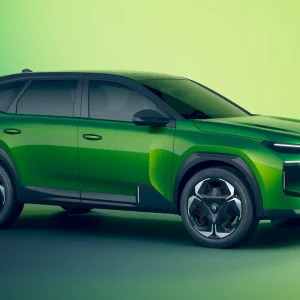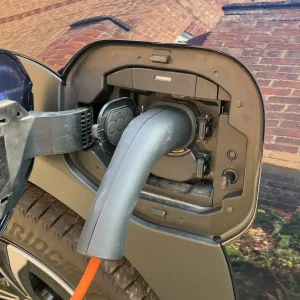Semiconductor supply issues could continue to affect new car production for months to come, according to Bosch.
The engineering firm, a major car industry parts supplier, issued the warning at a press conference presenting its 2020 annual report, where it also warned of the risks of a narrow focus on battery EVs by policymakers, rather than also considering alternative approaches to greener motoring such as synthetic fuels and hydrogen fuel cells.
Car manufacturing has been hit by a global shortage of semiconductors, a vital component in modern vehicles.
Bosch deputy chairman Stefan Asenkerschbaumer (pictured) said: “Especially in our automotive operations . we are noticing the supply shortages of semiconductors, which are very much in demand.
“Unfortunately, this situation cannot be expected to improve any time soon. Indeed, it seems likely that the entire industry will be confronted with this unsatisfactory situation for many months to come.”
Asenkerschbaumer warned that the issue meant recovery predictions for car manufacturing post-pandemic would need to be revised downwards.
He said: “Both for us and our customers, this will be a drag on business developments in a phase of economic recovery. In the long run, the automotive industry’s supply chains have to become less prone to disruption, especially when it comes to semiconductors.”
On the subject of electrification, Bosch chairman Volkmar Denner said this was establishing itself as the core business focus of the company’s mobility solutions division. However, he urged policymakers not to focus solely on battery EVs at the expense of other potential routes to decarbonisation.
He said: “An opportunity is being missed if renewable synthetic fuel derived from hydrogen and CO2 remains off-limits in road transport.
“Climate action is not about the end of the internal combustion engine, it’s about the end of fossil fuels. And while electromobility makes road transport carbon neutral, so do renewable fuels, and Bosch is encouraging the development of both.”
Denner criticised European policymakers for being “fixated” on putting an end to the internal combustion engine.
He said: “Climate-neutral mobility is a goal that’s almost as ambitious as flying to the moon. When Kennedy announced the ambitious goal of putting a man on the moon, he left it up to engineers to decide how to achieve it.
“The European Commission is running the risk of doing the reverse. With their policy, which in effect amounts to a technology monopoly, the moon landing would not have succeeded.”
Bosch plans to invest one billion euros in hydrogen fuel cell technology over the next three years, and to trial the technology with HGVs, but although it is currently thought to make more sense with heaver vehicles, the company is not ruling it out as a more prominent option for cars in the future.
Bosch mobility solutions chairman Stefan Hartung said: “It’s safe to assume in just a few years we will see production readiness in fuel cell systems for trucks. Then cars? Well, let’s wait and see.
“That especially depends on the question of the infrastructure, because you have got to be able to refuel with hydrogen, and for trucks you can have more dispersed infrastructure because they have certain given routes, but on passenger cars you need a tightly knitted mesh of refuelling stations.
“But Japan is leading the way in showing how it works, and maybe in Europe we will also have decentralised hydrogen infrastructure to a great extent, and then, for certain passenger car segments, the fuel cell might also become an option.
“As Mr Denner said, we have got to keep all options open and available for carbon-neutral solutions, and in the end the market will decide.”
Picture: Bosch





